News archive 2022

Major new study to track spread of Incel ideology online will help inform counter-extremism efforts
A major new study to track the spread of Incel ideology online will help academics and practitioners better understand the spread of extremist ideologies and aid the development of intervention measures.

Parents more climate conscious under their children’s watchful eye
Parents are more likely to take action against climate change if observed by their children, a study reveals.

More trusting societies have been more successful at reducing coronavirus cases and deaths
Countries where people have more trust in each other have been more successful in bringing down waves of coronavirus cases and deaths, a new study shows.

£6 million-funded studies into Parkinson’s disease seek participants
People affected by Parkinson’s disease are being invited to take part in a series of cutting-edge trials enabled by nearly £6 million in funding to the University of Exeter.

Exeter secures significant grant to revolutionise wireless and computing technologies
The University of Exeter has received a £1.8 million research grant for a collaboration with the National Science Foundation Industry-University Cooperative Research Center for Metamaterials (CfM)

Play featuring 83-year-old actress will involve audiences to understand experiences of dementia
At 83, Gill Cree thought her acting days were behind her, yet she is now part of a cast who will involve audiences in an innovative play designed to share understanding of the experience of living with dementia.

Pheasants lose their cool after fighting
Pheasants' heads cool rapidly as they prepare to fight – then heat up afterwards, new research shows.

Using a different language can reduce vaccine hesitancy
Vaccine hesitancy could be reduced by providing health information in a foreign language, a new study finds.

Medieval warhorses were surprisingly small in stature, study shows
Medieval warhorses are often depicted as massive and powerful beasts, but in reality many were no more than pony-sized by modern standards, a new study shows.

New bacteria in UK waters as temperatures rise
Rising temperatures are causing a "growing diversity" of Vibrio bacteria in the sea around the UK, new research shows.

Ketamine and psychological therapy helped severe alcoholics abstain for longer in trial
People with severe alcohol disorder were able to stay off alcohol for longer when they were treated with low doses of ketamine combined with psychological therapy in a clinical trial.

From telegrams to Twitter – archives of letters sent to party leaders will uncover impact of political correspondence
Whether being treated like celebrities with thousands of adoring fans or being demonised by online ‘trolls’ today’s politicians receive a never-ending barrage of public communication.

Are you Britain’s next super-matcher? Take our test to find out!
The quest to discover how some people can compare or “match” the intricate details of faces, fingerprints and even firearms only by sight has taken a new, exciting twist.

New project to provide evidence on hormone therapy for transgender people
A new project will provide transgender people with evidence-based information on what to expect when undergoing gender-affirming hormone therapy (GAHT).

New discovery on regulation of organelle contact
A pioneering study has revealed how cellular compartments (organelles) are able to control how much they interact and cooperate.

Bid to understand how bacterial defences affect the spread of 'mobile genetic elements'
A major new project will investigate how bacterial defences influence the spread of segments of DNA called mobile genetic elements (MGEs) between bacteria.

One in ten people may still be infectious for COVID after ten days, new research indicates
One in 10 people may have clinically relevant levels of potentially infectious SARS-CoV-2 past the 10 day quarantine period, according to new research.

Study finding “recurrent delirium over 12 months predicts dementia” wins prestigious prize
A research paper involving the University of Exeter has been awarded the prestigious Dhole-Eddlestone Memorial Prize 2022.

Talent in rural areas of Cornwall “wasted” because of poor public transport and lack of internet access, study warns
The skills of talented people in living in rural Cornwall are being wasted because of poor public transport and lack of internet access, a new study warns.

US early Cold War hostility towards Chinese Communist Party due to the influence of Truman’s nationalist beliefs, new research argues
US hostility towards the Chinese Communist Party in the early years of the Cold War stemmed from the influence of President Truman’s nationalist beliefs, a new study argues.

4°C warming by 2100 'can't be ruled out'
Global warming of 4°C by 2100 still cannot be ruled out, according to experts whose work informed a new UK government report.

Trust in the UK Government, social norms, and privacy concern associated with uptake of NHS Covid-19 app, study shows
Uptake and continued use of the NHS Covid-19 app last year depended on people’s trust in the UK Government, their concern about privacy, and crucially whether other people in their social networks endorse it, a new study shows.

Shared political views have moderating influence on cross-border mergers and acquisitions
Investors react more negatively to transactions between firms in different countries if there is evidence of weak political affinity, a new study suggests.

Bluefin tuna tagged for the first time in UK waters with acoustic ‘residency’ tags
Bluefin tuna have been tagged with state-of-the-art acoustic tracking tags for the first time in UK waters.

Fish study shows role of oestrogens in sense of smell
Steroid oestrogens play an important role as embryos develop a sense of smell, new research shows.

English Channel stops new rockpool species reaching UK
The English Channel prevents many rockpool species "making the jump" from Europe to the UK, new research shows.

Bid to discover how immune systems recognise fungal invaders
A new research programme aims to define the vital first step in how human immune systems recognise fungal invaders.

University of Exeter ranked as 46th most international in the world
The University of Exeter has been ranked as the 46th most international university in the world, based on data from the Times Higher Education World University Rankings.

Lucky genes can help protect people with obesity from some disease
Geneticists from the University of Exeter and Brunel University London have revealed why some people with obesity remain relatively healthy, whilst others suffer from life-changing ailments such as type 2 diabetes and heart disease.

Seeing the same GP improves treatment for people with dementia, study finds
People with dementia who see the same GP each time have lower rates of health complications and fewer emergency hospital admissions, according to a new study.

Forest emissions scheme makes “tiny” contribution to Indonesia’s Paris targets
More than 70 million tons of carbon were prevented from being released into the atmosphere under a deforestation emissions reduction scheme in Indonesia – but researchers point out this is only 3 per cent of the total required by Indonesia’s Nationally Defined Contribution (NDC) under the Paris Agreement.

Turf cutting ceremony celebrates start of construction on a £30m water research centre in Exeter
Last week a turf cutting ceremony took place to mark the beginning of construction of a pioneering new facility for the Centre for Resilience in Environment, Water and Waste (CREWW), a partnership between the University of Exeter and South West Water.

Investment in research pays off for GW4 Alliance with record return
GW4’s return on research investment is at its highest level to date, highlighting the value in community building and networking funding.

Zoo enrichment could go further
Zoos and aquariums could improve the lives of a wider range of their animals, new research suggests.

Expansion of university accelerator will benefit North Devon businesses
North Devon based Start Ups and early-stage businesses will be able to connect more easily with the business support and acceleration services offered by the University of Exeter as a result of the recently announced collaborations with partners across Devon.

Wider-reaching solutions urgently needed to reach realistic ‘net zero’, warn researchers
There should be greater investment in using a wider group of experts to make decisions about how the landscape is managed if the UK is to reach climate targets such as net zero, a new report warns.

Fuel poverty can increase mental health risks for social housing tenants
New research published in Wellbeing, Space and Society, highlights the increased mental health risks of fuel poverty, for people living in social housing.

Experts warn of the increasing overmedicalisation of death, call for radical rethink of how society cares for dying people
Health and social systems around the world are failing to give appropriate, compassionate care to people who are dying and their families.

Social sciences to play vital role in meeting UK’s net zero goals
The UK’s journey to net zero by 2050 is set to be bolstered by the social sciences, thanks to a major new investment from ESRC.

Can beetroot juice help keep our brains sharp in later life? New study investigates
An innovative clinical trial will investigate how drinking beetroot juice impacts brain function in older adults, via the bacteria that live in our mouths.

Councils urged to sign 'motion for the ocean'
UK councils are being urged to sign a "motion for the ocean" – pledging to engage with citizens to promote ocean recovery.

New research sheds light on dramatic criminal trials of authors in 17th century France
A major new study has explored the dramatic criminal trials of authors accused of subversion in 17th century France.

Construction 4.0 technologies key to improving sustainability of sector
Technologies forming part of the ‘fourth industrial revolution’ can improve the economic and environmental sustainability of an industry that contributes around 11% of all global carbon emissions, a new study shows.

Scouse musician living with dementia writes song for research project
A Scouse musician who has dementia has written an uplifting song to help support others living with the condition, as part of a major research project.

Fact checks on COVID-19 misperceptions are effective initially but do not stick over time
As the COVID-19 global epidemic persists, misinformation continues to circulate widely. Journalists and public health officials continue to struggle to debunk these false and misleading claims.

Exeter biologists investigate smallest propeller on earth
University of Exeter scientists have discovered new information about the tiny propellers used by single-cell organisms called archaea.

Legal “sunset clauses” should be used to limit use of covid certificates to current pandemic
“Sunset clauses” should be introduced into relevant legislation to limit the use of coronavirus certificates to just the current pandemic and not beyond, a study warns.

Hurricane may have caused 'accelerated ageing' among monkeys
Monkeys that survived a major hurricane show signs of "accelerated ageing", according to new research.

How do pathogens learn to be pathogens: partnerships between microbes leading to human disease
New research discovered that the fungus Rhizopus fights back against soil predators and human immune cells by partnering with a bacteria called Ralstonia in a two way partnership.
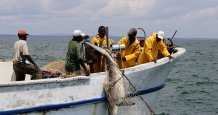
Gabon provides blueprint for protecting oceans
Gabon's network of Marine Protected Areas (MPAs) provides a blueprint that could be used in many other countries, experts say.

COP26 deal sparks hope for positive tipping points
The Breakthrough Agenda agreed at COP26 could help trigger positive tipping points to tackle the climate crisis, researchers say.

New butterfly-inspired museum installation highlights LGBTQ+ voices
A new installation inspired by butterflies showcases LGBTQ+ responses to objects at the Royal Albert Memorial Museum and Art Gallery.

Three Exeter researchers win Discovery Fellowships
Three University of Exeter researchers have been awarded prestigious Biotechnology and Biological Sciences Research Council (BBSRC) Discovery Fellowships.

Waiting over five hours at A&E increases risk of death
Patients made to wait longer than five hours at A&E face an increased risk of death within 30 days, a new study shows.

Research aims to improve sleep for people with dementia
Two new research programmes are helping find new ways to support people with dementia who experience problems with sleep.

African Heritage Sites threatened by coastal flooding and erosion as sea-level rise accelerates
Important heritage sites on the African coast classed as having “outstanding and universal value” are threatened by flooding and erosion because of the climate emergency, a new study warns.

UK biodiversity renewal project to revive nature and communities receives £10 million investment
Researchers at the University of Exeter have received £10 million to investigate and tackle biodiversity loss in the UK through partnerships and community action.

Decolonise research to save heritage threatened by climate change
Climate change threatens to destroy invaluable heritage sites and traditions in marginalised countries – but empowering local people is key to adaptation, according to a new study.
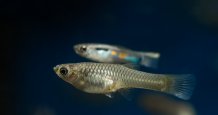
'Freeze or flee' reactions run in fish families
Families of fish tend to share similar reactions to stressful situations, new research shows.

Researchers win Medical Research Foundation’s Changing Policy and Practice Award
Two University of Exeter researchers have won a prestigious award, to help fund work to improve the accuracy of genetic testing in epilepsy.

Sexual orientation linked to choice of transport to work
Men and women in same-sex couples are more likely to commute by public transport and less likely to drive to work than those in different-sex couples, according to a new study.

More research needed into negative effects of loneliness, say experts
A new report has highlighted where more research is needed into the negative effects of loneliness on the UK’s population.
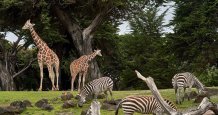
Zoo visits focused on sound give visitors new perspectives on the lives of animals, study suggests
Encouraging zoo visitors to focus on sounds as much as sights can help them feel a sense of connection with the lives of animals, a study indicates.

Exeter professor named among most influential women in psychedelics
University of Exeter Professor Celia Morgan has been named as one of the 16 most influential women shaping the future of psychedelics, by global news publication Insider.

Hubble detects exotic water cycle and metal clouds in a hot Jupiter exoplanet atmosphere
Scientists have explored the nightside hemisphere of an enormous planet, far outside our solar system for the first time – revealing metal clouds and rain made of liquid gems.

Step back in time to explore Exeter with characters living through the city’s most dramatic moments
A colourful cast of characters living through Exeter’s most dramatic moments are bringing the city’s history to life thanks to new research.

Over two thirds of UK social scientists warn their academic freedom is under threat, new study shows
Academics have said their freedom is under threat with evidence suggesting one of the reasons for this concern is the effect of internationalisation including risks associated with the rising influence of authoritarian states such as China.

Leading UK marine scientists welcome move towards global plastics pact ahead of major UN meeting
Plastic pollution is universally accepted as having dire effects on the world’s marine life and ecosystems, in addition to presenting risks to human health including through the leaching of chemical additives and consumption of microplastics contained in seafood

New documentary tells the story of the “Red River” – the powerful symbol of Cornish identity
A new documentary by a University of Exeter expert celebrates the unique Cornish Red River – a powerful symbol of the county’s identity.

Celebrate Cornish innovation past and present at exciting St Piran’s Day event
Cornwall’s unique heritage and identity will be celebrated at a special St Piran’s Day event which marks innovation in the county.

Racing looks through eyes of horses to help deliver improved safety at all British jump courses
Racing at Stratford Upon Avon on 14 March will mark the start of a new era over jumps in Britain as obstacles begin turning white as part of a welfare-driven project to develop new ways to help make hurdle and fence design safer.

Bid to protect "blue food" revolution
Scientists have developed a new way to identify and reduce the impact of chemicals and diseases in global aquaculture (fish farming).

IPCC report highlights need for climate action and adaptation
A new report from the Intergovernmental Panel on Climate Change (IPCC) highlights the need stop carbon emissions and adapt to "unavoidable risks", according to one of its Lead Authors.

Plastic labelling needs 'sustainability scale'
Labelling of plastic products needs a drastic overhaul including a new "sustainability scale" to help consumers, researchers say.

Major new study will show how widening inequalities in education and employment caused by the COVID-19 pandemic will impact children’s life prospects
A major new study will show how widening inequalities in education and employment caused by the COVID-19 pandemic will impact children’s life prospects.

Experts mark centenary of key election battle crucial for survival of Cornish liberalism
Experts are marking the centenary of a key South West political battle which proved crucial for Liberalism to survive in Cornwall.

Mental health impact of Covid still being felt, study finds
The deterioration in people’s mental health linked to Covid-19 is showing no sign of returning to pre-pandemic levels, a new study finds.
_feat_218x115.jpg)
Female chimpanzees avoid humans
Female chimpanzees are less likely than males to go near villages and farmland used by humans, new research shows.

Whole-genome sequencing reveals new secrets about killer fungus
New research from the University of Exeter reports largest ever whole-genome sequencing project for the potentially fatal yeast infection Candida glabrata from hospitals across Scotland

Exeter and Potsdam agree 'tipping points' partnership
The University of Exeter and the Potsdam Institute for Climate Impact Research (PIK) have signed an agreement to jointly investigate climate change tipping points.

Differentiated integration can foster fairer cooperation between EU nations but should be subject to constraints
Allowing European nations to integrate into the EU in flexible ways can foster fairer cooperation – but it should be subject to certain constraints, a new study argues.

Increasing frequency of El Niño events expected by 2040
Global weather fluctuations called El Niño events are likely to become more frequent by 2040, a new study shows.

Amazon rainforest losing resilience
The Amazon rainforest is becoming less resilient – raising the risk of widespread dieback, new research shows.

Laws governing weddings are outdated and too restrictive in contemporary society, new research shows
Current laws governing weddings are too outdated and restrictive and do not reflect the diversity of faith and beliefs in modern society, a new report from experts at the Universities of Warwick and Exeter highlights.

Lady Mireille Gillings to Open Neuroimaging Centre
Global business leader and philanthropist Lady Mireille Gillings, PhD, will officially open the cutting-edge new imaging centre which bears her name on International Women’s Day (March 8).

Mindfulness-based cognitive therapy benefits people with depression through promoting self-kindness
New research shows that Mindfulness-Based Cognitive Therapy (MBCT) can help promote self-kindness in people with a history of depression.
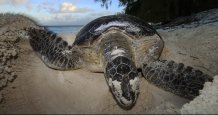
Half century of protection pays off for sea turtles
Green turtle numbers continue to rise on a group of islands where the species has now been protected for more than 50 years, new research shows.

New targets could help public sector use more local food, according to new report
The public sector can strengthen local supply chains and help local producers access them.
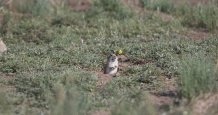
Voles cut grass to watch flying predators
A tiny rodent trims tall grasses so it can watch the skies for flying predators, new research shows.
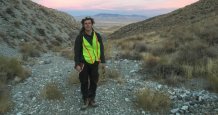
New toolkit aids discovery of mineral deposits crucial to ‘green economy’ transition.
Scientists have developed a new toolkit for the discovery of mineral deposits crucial to our transition to a ‘green economy’.

Coronavirus remembrance and memorials should not be led by the Government, new report argues
Events to mark the coronavirus pandemic should not be led by the Government, and must not depersonalise loss, a new report argues.
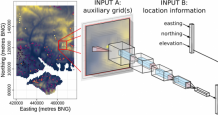
Pivotal technique harnesses cutting-edge AI capabilities to model and map the natural environment
Scientists have developed a pioneering new technique that harnesses the cutting-edge capabilities of AI to model and map the natural environment in intricate detail.

Researchers aim to discover how viruses communicate
The different "languages" used by viruses will be investigated by a new research project at the University of Exeter.

New shoe helps older women stay active
Researchers and a shoe manufacturer have joined forces to create shoes to help older women stay active and keep playing sport.

Help needed for major new study on labour shortages and skills crisis in the farming and horticultural industry
A major new study will shed light on the labour and skills shortages responsible for the staffing crisis in the farming and horticultural industry.

Repeal of the Human Rights Act would 'wind the constitutional clock back to the 1990s', experts warn
The proposed repeal of the Human Rights Act would “wind the constitutional clock back to the 1990s” and is “particularly unwise” now because of the actions of Russia in Ukraine, experts have warned.

Medical equality undermined by mistaken male doctors
Progress on gender equality in the medical profession could be hampered by male doctors who overestimate female representation, researchers say.

Group exercise has long-term positive impacts for over-65s with mobility limitations
Positive results from a major study into the effectiveness of a community-based group exercise programme designed for people aged 65 and over with mobility limitations.

Urgent action ‘critical’ to tackling NHS carbon emissions and reaching 2040 net zero target
The NHS and its suppliers have been urged to systemically adopt circular economy practices to stand any chance of meeting the government’s commitment to achieve a net zero NHS by 2040.

New hub for the best evidence about promoting good health will help inform new policy
A new hub that aims to present best evidence available on promoting good health will help inform new policy across the world.

Hundreds of experts sign declaration denouncing religious ideology driving Vladimir Putin's invasion of Ukraine
Hundreds of experts have signed a declaration renouncing the religious ideology driving Vladimir Putin’s invasion of Ukraine.

Switching social identities happens seamlessly
People can switch seamlessly between different social identities, new research shows.

Sounds of nature benefit mental health and promote environmental protection
The sounds of nature could help us recover from mental fatigue
._Credit_Dr_Xiaoya_Ma_feat_218x115.jpg)
Modern animal life could have origins in delta
The ancestors of many animal species alive today may have lived in a delta in what is now China, new research suggests.
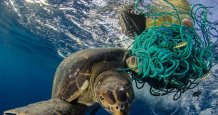
South West survey to boost Pacific plastic project
People in the South West of England can help researchers tackle plastic pollution locally – and thousands of miles away – by completing a short survey.

Outstanding Exeter diabetes nurse wins prestigious leadership scholarship
An internationally renowned diabetes research nurse has been awarded a prestigious Florence Nightingale Foundation Leadership Scholarship.
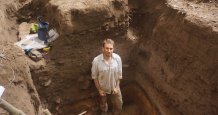
Migration across South America led to intensive farming methods spreading across the region, study shows
Human migration from South America back into Mesoamerica thousands of years ago led to the spread of intensive farming methods across the region, according to a new study.
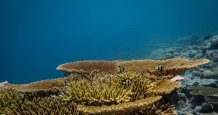
Remote Indian Ocean reefs bounce back quickly after bleaching
Coral reefs in remote or protected areas can recover quickly after mass coral bleaching events, new research shows.

Radical new Urdu female writers using poetry to call for changes to gender roles in Pakistan, major new study shows
Radical new female writers and performers are transforming Urdu from being a “genteel” language and using their work to call for changes to gender roles in Pakistan, a major new study shows.

Does living a simpler life mean a happier and healthier life? New TV series co-designed by GW4 experts aims to find out
Could living a simpler life with no modern comforts, cut off from the modern world be better for us?

Low Psychological resilience predicts future high blood sugars in type 1 diabetes
New research from the University of Exeter and University of Brighton indicates that people who are diagnosed with type 1 diabetes are more likely to manage their condition successfully if they have high levels of psychological resilience.

Recent reforms are not enough to tackle kleptocracy, new report examining complex web of Kazakhstan property ownership says
Experts have criticised inadequate legislation, failures by the National Crime Agency, and “flawed” legal judgements which led to the dismissal of a high-profile case against the relatives of Kazakhstan’s autocratic first president.

Verbal aggression towards women CEOs a result of ‘out of group’ gender bias
Female CEOs face more aggressive questioning from male analysts during earnings conference calls, a new study reveals.

Exeter partners with National Grid on innovation projects to help deliver Net Zero
The University of Exeter is part of a pivotal new partnership that will help decarbonise the electricity system in Great Britain and accelerate progress towards Net Zero.

New research highlights “significant gap” in evidence about effectiveness of relationship education programmes
Educators should have not have ‘high’ confidence in the quality of existing relationship education programmes because there is a lack of robust evaluation, experts have warned.

African network protects key turtle sites
A network of West African Marine Protected Areas (MPAs) covers key sites used by green turtles, new research shows.

Exeter experts comment on IPCC report
University of Exeter researchers have commented on the new report published by the Intergovernmental Panel on Climate Change (IPCC).

Major research effort to save future of European peatlands
A five-year, £3.7m research project involving scientists from the UK and across Europe will assess the risk that climate change poses to peatlands, and improve methods of managing these important ecosystems.

Spoken descriptions of new technologies provoke more positive attitudes than written ones
People react more positively to new technologies when hearing spoken descriptions of them than when the identical information is written down, a new study finds.

Exeter academic warns of ‘funding issue’ over government’s ambitious tree planting plans
A senior Exeter academic has warned that the government will fail to meet its ambitious tree planting targets without “major and rapid changes” to how the scheme is financed and run.

Success for Exeter subjects in influential league rankings
Subjects from across all disciplines at the University of Exeter have been recognised as being amongst the very best in the world, according to the latest influential global league table.

Selective breeding sustainably protects honey bees from Varroa mite
A new breed of honey bees provides a major advance in the global fight against the parasitic Varroa mite, new research shows.

Surfer science supports seawater study
Seawater samples taken from a surfboard have helped scientists understand microscopic life in the waves, new research shows.

Children think farm animals deserve same treatment as pets
Children differ dramatically from adults in their moral views on animals, new research shows.

Blockchain has potential to redefine democracy and can support electoral law, an expert has said
Blockchain has the potential to redefine politics and support new electoral law, an expert has said.

Close bond between two of Spain’s finest female writers brought to life in new stage show
The close bond between two of Spain’s finest female writers will be brought to live in a major new London stage show.

New research calls to scrap the smoking prevention/cessation binary when addressing the issue of tobacco use among young adults
A complex array of smoking behaviours and identities among young adults explains why public health initiatives around smoking prevention and cessation are not working for this age group, according to latest research led by Dr Ria Poole at the University of Exeter.

Experts develop new ways of visualising ancient small objects by combining technologies from archaeological research, computer graphics and video game development
Experts have developed new ways of visually representing ancient objects such as stone tools and fossils developing technologies currently only used in video games and computer graphics.

University spin-out company aiming to treat degenerative disease announces funding
A biotech company which aims to harness University of Exeter research to develop new therapeutics to stop the progression of degenerative diseases has received new seed financing.

Protected areas don’t always boost biodiversity
Protected areas such as national parks have a "mixed impact" on wildlife, according to the largest ever global study of their effects.

Fertility support for people with variations in sex characteristics overlooked by medics, report shows
An over-medicalised approach to support for adults with variations in sex characteristics means their emotional and psychological needs are being overlooked, a new report shows.

'Whup' and 'grumble' calls reveal secrets of humpback whales
Sounds made by humpback whales – including a previously unknown call – have given researchers a glimpse of their lives in the high seas.

Blockchain to play a key part in ensuring copyright laws can be used for 3D printing
Blockchain technology will soon be able to be applied within items produced by 3D printers thanks to pioneering work by experts.

Landmark new technology to improve efficiency of sewer system surveys
A new AI tool is set to improve the efficiency of surveying sewerage systems and has the potential to benefit the entire water industry.

Multi-million funding for new 'terrestrial blue economy' research
A pioneering new research project, designed to unlock the true potential of sustainable shrimp production in the UK using renewable energy technology, has received a multi-million pound funding boost.

Researchers discover drug-resistant environmental mould is capable of infecting people
A new study led by Imperial College London, working with the University of Exeter, finds that drug-resistant mould is spreading from the environment and infecting susceptible people’s lungs.

Protected areas don’t always boost biodiversity
Protected areas such as national parks have a "mixed impact" on wildlife, according to the largest ever global study of their effects.

Scientists solve key exoplanet questions through Hubble observations
The quest to solve some of the most crucial mysteries surrounding the atmospheres of planets far outsider the solar system has taken a significant step forward

UK wildlife watchers welcome "ecological refugees"
Wildlife watchers generally welcome species that have arrived in the UK due to climate change, new research suggests.

Cut emissions "starting now" – Global Carbon Project experts
The Global Carbon Project has published its full analysis for 2021, reinforcing the need for rapid emissions cuts.

Lighting Up Artificial Neural Networks
A team of international scientists have performed difficult machine learning computations using a nano-scale device, named an “optomemristor”.

Origin of complex cells started without oxygen
The origin of complex cells started without oxygen, new research suggests.

Loneliness leads to higher risk of future unemployment, study finds
Experiencing loneliness appears to lead to a higher risk of future unemployment, according to new research.

Resilience of ecosystems can be measured from space
A natural habitat's ability to withstand and recover from damage can be empirically monitored from space.

Pandemic left hospitality workers more vulnerable to conflict from customers and less able to challenge managers over safety due to financial insecurity, study shows
Hospitality workers felt less able to challenge and negotiate bad practice or unsafe working conditions during the coronavirus pandemic, a new study shows.

Parks and green spaces of England and Wales valued at £25.6 billion a year
Parks and green spaces provide around £25.6 billion of ‘welfare value’ to the health and wellbeing of adults in England and Wales each year, according to a ground-breaking new tool that calculates the economic value of outdoor recreational spaces.

GW4 Generator Award: Seven collaborative research communities awarded £125k funding
Projects exploring the circular economy in building construction, net zero transport systems, and antibiotic-resistance genes are among seven research communities awarded £125,000 in GW4 Alliance funding.

Experts to establish new archive of Kurdistan’s culture, history and politics
An international team of experts are establishing a major new archive of Kurdistan’s culture, history and politics.

Efforts to take fake news and misinformation in Africa must take account of the continent’s unique “pavement media”, study shows
The spread of fake news through “pavement media” in Africa means the continent needs unique techniques to tackle the spread of misinformation, a new study says.

Smartline shortlisted for the Housing Heroes Awards 2022
Ground-breaking Cornwall-based research project Smartline and Coastline housing have been shortlisted for the Housing Heroes Award 2022 the under the ‘Best company health and wellbeing initiative category’.

Historic graffiti made by soldiers sheds light on Africa maritime heritage, study shows
Historic graffiti of ships carved in an African fort were drawn by soldiers on guard duty watching the sea, University of Exeter experts believe.

Major new study will investigate impact of innovative orchestra performances which use dance, drama and film
A major new study will analyse the impact of ‘theatrical’ performances by British orchestras, which use dance, acting and film, and are attracting new audiences.

Research unlocks personalised care in type 2 diabetes
Moving away from a “one-size fits all” care regime has the potential to transform care for people with type 2 diabetes, a University of Dundee study has shown.

Exeter researcher elected Fellow of Royal Society
A leading University of Exeter climate scientist has been elected a Fellow of the Royal Society.

AI set to transform science and engineering in Canada
Artificial intelligence (AI) is poised to transform how science and engineering is conducted and funded in Canada, bringing both tremendous opportunities and risks, according to a new expert panel report from the Council of Canadian Academies (CCA).

Research ship delves into ocean history
A research ship is taking seabed samples from the North Sea and North Atlantic to find out what the oceans were like before major changes caused by humans.

First detailed academic study of East African maritime traditions shows changes in boatbuilding
The first detailed academic study of East African maritime traditions shows changes in boatbuilding techniques but the continuing use of wooden vessels by fishers.

Peru "pinger" trial deters dolphins but not whales
A trial of underwater sound devices called pingers reduced the number of dolphins caught in fishing nets – but did not deter humpback whales.

Exeter extreme medicine experts deliver £890,000 in life-saving medical aid to Ukraine
Global experts in delivering medical training for people working in remote environments have galvanised more than £645,000 worth of life-saving medical supplies to the frontline of the Ukrainian war zone.

University of Exeter’s growth in Research Power recognised in REF2021
The University of Exeter’s commitment to producing world-leading research has been recognised by the Research Excellence Framework (REF) 2021

Sea turtle success stories along African east coast – but thousands still dying
Conservation of sea turtles along Africa's east coast has made good progress – but tens of thousands still die each year due to human activity, researchers say.

Asking for ideas boosts collective action
Members of minority groups can boost collective action by seeking the ideas and perspectives of fellow group members, new research shows.

Pioneering research facility receives funding boost to achieve net zero
A pioneering new research facility, designed to solve some of the most pressing global environmental challenges of our time, has received a near £1 million funding boost to achieve “Net Zero” status.

Track which political parties represent your views with new online tool
A new online tool helps people to see how closely their views match with policies of political parties around the UK.

Deep ocean warming as climate changes
Much of the "excess heat" stored in the subtropical North Atlantic is in the deep ocean (below 700m), new research suggests.

Exeter signs MoU to boost collaboration on Spaceport Cornwall
A strategic partnership, designed to help place Cornwall at the forefront of British science and innovation in space, has received a significant boost.

Scallops swim into illuminated fishing pots
Scallops are drawn to illuminated fishing pots like moths to a flame, new research shows.

Uncovering hidden cultures in workplaces can help make businesses more inclusive, according to social mobility expert
Companies should introduce ways of uncovering informal hidden cultures to create more inclusive workplaces, a social mobility expert has told parliamentarians.

University of Exeter’s Q-Step centre helping to plug shortages of graduates able to analyse data, evaluation shows
The University of Exeter’s Q-Step centre is helping to tackle the national shortage of graduates with the skills to use data to better understand society, an evaluation shows.

Satellites and drones can help save pollinators
Satellites and drones can provide key information to protect pollinators, researchers say.

'Traffic calming' boosts breeding on coral reefs
Coral reef fish breed more successfully if motorboat noise is reduced, new research shows.

Children who play adventurously have better mental health, research finds
Children who spend more time playing adventurously have lower symptoms of anxiety and depression, and were happier over the first Covid-19 lockdown, according to new research.

'Democracy' governs mass jackdaw take-offs
Jackdaws use a "democratic" process to decide when to leave their roosts en masse, new research shows.

Study finds crime-cutting benefits of therapy when combined with cash handouts
Spending $500 for therapy and a small cash payment helped reduce crime and violence by half among some of the most troubled young men in West Africa, a new study has found.

Newly discovered ancient Amazonian cities reveal how urban landscapes were built without harming nature
A newly discovered network of “lost” ancient cities in the Amazon could provide a pivotal new insight into how ancient civilisations combined the construction of vast urban landscapes while living alongside nature.

Pioneering study identifies global dynamics of Antibiotic Resistance
Scientists have used ideas from artificial intelligence to identify patterns of antibiotic resistance around the world.

People must be 'heart' of climate action
Tackling the climate crisis can only be achieved by "placing people at the heart of climate action", researchers say.

Drug resistance molecule can spread though bacterial 'communities'
DNA molecules called plasmids – some of which protect bacteria from antibiotics – can spread rapidly through bacterial "communities" that are treated with antibiotics, new research shows.

New study maps financial ownership of more than $1 trillion of the fossil fuel industry’s projected ‘stranded asset’ losses due to low-carbon transition
Driven by technological, societal and political change, renewable energy technologies are progressively replacing fossil fuels.

'Fuel of evolution' more abundant than previously thought in wild animals
The raw material for evolution is much more abundant in wild animals than we previously believed, according to new research from the Australian National University (ANU).
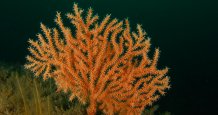
British coral predicted to be resilient to climate change
An iconic coral species found in UK waters could expand its range due to climate change, new research shows.

AI learns coral reef "song"
Artificial Intelligence (AI) can track the health of coral reefs by learning the "song of the reef", new research shows.

Influence of remarkable Hispanic women honoured though major historical project
More remarkable Hispanic female pioneers in journalism, sport and the arts have been honoured as part of a major historical project.

No "echo chambers" in Reddit climate debate
Climate change debates on Reddit don't happen in polarised "echo chambers", new research suggests.

Stunning new exhibition connects computer art with the ancient tradition of glassmaking
A stunning new exhibition connecting paintings made by computers with the ancient tradition of glassmaking is part of major new research to document, exhibit and preserve digital art.

Talking Deck to help people with life and health issues
A new "Talking Deck" will help shape conversations at an Exeter wellbeing hub.

Legislation focused on obscenity and indecency will not help to keep children safe online, expert warns
Laws that are premised on the traditional notions of obscenity and indecency will not help to keep children safe online, a leading expert has warned.
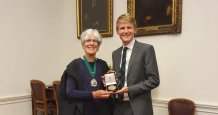
Exeter doctoral student wins prestigious medal for "extraordinary" research
A prestigious medal for the UK’s best PhD thesis in biology has been awarded to Dr Timothy Lamont, for his PhD work at the University of Exeter.

Social mobility prospects bleak for Jubilee Generation
Social mobility prospects for the current generation of school-aged young people are bleak, warns a major new report published today to mark the 25th anniversary of the Sutton Trust.

Experts celebrate shipshape partnership to reveal more about Cornwall’s maritime history
Experts from the University of Exeter and National Maritime Museum Cornwall are celebrating their continuing partnership. They are working together to spread the word about the region’s fascinating maritime history.

Major new international research reveals new evidence about when, where, and how chickens were domesticated
New research transforms our understanding of the circumstances and timing of the domestication of chickens.

Scientists show how fast-growing bacteria can resist antibiotics
Scientists have demonstrated how some fast-growing bacteria can resist treatment with antibiotics, according to a study published today in eLife.

Free Soapbox Science talks in Exeter
Fish on painkillers, the power of tiny shrimps and late-night snacking by bumblebees are just some of the subjects on offer at this year's Soapbox Science in Exeter.

Otters learn from each other – but solve some puzzles alone
Otters learn skills from each other – but they also solve some mysteries alone, new research shows.

United Kingdom’s redistributive health system faces major challenges
A new health system review for the United Kingdom (UK) reveals recent developments in financing, governance, organisation and delivery of health care in one of the world’s most comprehensive health systems.

Exeter researcher rediscovers unique story of an African prince in Exeter
The rediscovery of a unique visit by an African prince to Exeter has encouraged a researcher to find links between the city and the Eritrean Ethiopian region.

Universities of Exeter and Queensland renew their commitment to working in partnership to find solutions to pressing global challenges
During a recent visit to the University of Exeter, Professor Deborah Terry AO, President and Vice-Chancellor of the University of Queensland, and Professor Lisa Roberts, Vice Chancellor and Chief Executive of the University of Exeter, signed an agreement renewing the Universities’ partnership through the QUEX Institute for a further five years, and discussed their shared vision for the future.

Combined carbon and health taxes on food products could significantly contribute to net-zero targets and improve the quality of diets, study shows
Combined carbon and health taxes on food products could significantly contribute to net-zero targets, while improving the quality of diets, a major new study shows.

New research gives insights into how organelles divide in cells
A pioneering study has shed new light on how subcellular organelles divide and multiply.

Exeter healthy ageing treatments company raises £2 million in latest seed funding round
A company borne out of University of Exeter research has raised more than £2 million from existing investors, to take its cell rejuvenation technology to aid healthy ageing to the next stage of development.

Science Futures to make Glastonbury debut
Festivalgoers can learn about climate change, space travel, plant power and much more at Glastonbury's new Science Futures area.

Numbers and experience count in mongoose warfare
Strength in numbers and experienced individuals are both vital in mongoose warfare, new research shows.
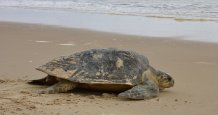
Research reveals true extent of sea turtle conservation success
The true extent of how successful conservation efforts to protect sea turtle populations along the western coast of Central Africa have been revealed in a new study.

University of Exeter receives £1.8 million funding boost
The University of Exeter has been awarded more than £1.8 million to enable researchers to unlock the potential value of their work, and kickstart new ways in which to tackle some of the most pressing issues of our time.

Who wants to be a billionaire? Most don’t – which is good news for the planet
A new study busts the long-held economic belief that humans are all motivated to want more and more, which could have important implications for sustainability policies.

Researchers develop the world's first ultra-fast photonic computing processor using polarisation
New research uses multiple polarisation channels to carry out parallel processing – enhancing computing density by several orders over conventional electronic chips.

Gene discovery indicates motor neurone diseases caused by abnormal lipid processing in cells
A new genetic discovery adds weight to a theory that motor neurone degenerative diseases are caused by abnormal lipid (fat) processing pathways inside brain cells.

Breakthrough in quest to control light to evolve next generation of quantum sensing and computing
Scientists have made a pivotal new breakthrough in the quest to control light to evolve the next generation of quantum sensing and computing.

Exeter researcher wins Lister Prize
A University of Exeter researcher has won the prestigious Lister Prize to support her research into fungal pathogens.

Early success of Exeter’s NIHR School for Primary Care Research celebrated at launch event
The early success of the University of Exeter’s membership of the national network of National Institute of Health and Care Research (NIHR) Schools for Primary Care Research has been celebrated at a launch event.

How the mystery of the missing oystercatcher tag was finally solved
Exeter researchers will soon be able to redeploy an electronic tag used to monitor migrating oystercatchers, which went missing on Orkney before mysteriously transmitting signals from a campsite, tourist attractions and a pizza restaurant.

Two Exeter diabetes researchers named "Rising Stars"
Two researchers at the University of Exeter Medical School have been recognised as rising stars in diabetes research.

New resources designed to prevent cruel and inaccurate representation of self-harm in literature
Experts and campaigners working to prevent cruel and inaccurate representation of self-harm have created new resources to encourage better portrayal of those in mental distress.

European network meets in Exeter to collaborate on arts and culture development
On 7-9 June, a network of European universities and city authorities came together in Exeter, to discuss how cities and universities can work together to support arts and culture in their local areas.

Gender differences in behaviours linked to faster cognitive decline revealed in research
Men who experience behaviour changes including apathy or having false beliefs and perceptions in later life are at risk of faster cognitive decline than women, according to new research.
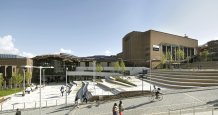
University of Exeter to lead consortium for Dstl’s new Defence Data Research Centre
The University of Exeter (UoE) will lead the consortium on a new Defence Data Research Centre (DDRC), which will focus on improving the use of data for Artificial Intelligence applications.

Investing in nature is key to levelling up rural regions in the UK says new report
Investing in the environment and thinking more creatively about our reserves of “natural capital” should be at the heart of the government’s levelling up agenda, a new report suggests.

Ice Age wolf DNA reveals dogs trace ancestry to two separate wolf populations
An international group of geneticists and archaeologists have found that the ancestry of dogs can be traced to at least two populations of ancient wolves.

Climate change will increase chances of wildfire globally – but humans can still help reduce the risk
New research highlights how the risk of wildfire is rising globally due to climate change – but also, how human actions and policies can play a critical role in regulating regional impacts.

New 3D model will help guide exploration for rare earth element deposits in alkaline igneous systems
Scientists from the University of Exeter and the British Geological Survey (BGS), alongside a team of institutions across Europe, have developed a new 3D geological model designed to guide exploration for rare earth elements (REE), which are critical for development of renewable energy and transport.

How wildflower seed can help business bloom
The vital role of wildflower seeds in pollinating our food, maintaining biodiversity and contributing to the economy will be highlighted on National Meadows Day (2 July) in two new reports published by the South West Partnership for Environmental and Economic Prosperity Programme (SWEEP).

Americans more likely than those in the UK to feel threatened by China’s development as a world power, survey shows
Americans were more likely than people living in the UK to feel threatened by China’s growth as a world power, a new survey shows.

Coronavirus pandemic has led to more “microworking” – study shows
The coronavirus pandemic has led to more people choosing to become “microworkers”, a new study shows.

Introducing the Real Living Wage to Penzance would improve the local economy, new research suggests
Giving Living Wage Town status to Penzance would help improve the local economy and the reputation of the area, new research shows.

Experts developing wearable technology to support women to remain active as they age
New wearable technology will be developed as part of a project to help older women stay active and keep playing sport.

Women-led businesses hit harder during height of COVID, study finds
Businesses led by women were hit harder by COVID-19 than those led by men, according to a new study.

False beliefs about prevalence of crime could influence jury decisions, new study shows
Some juror decisions are influenced by perceptions of the prevalence of crimes which can be incorrect or biased, a new study shows.

Teachers and experts join forces for major new research network to support Deaf children’s achievement at school
Teachers, researchers and British Sign Language interpreters have joined forces for a major new research network which will seek to understand why Deaf pupils are more likely to underperform at school.

Scientists discover key genes behind insect migrations
Scientists have identified more than 1,500 genetic differences between migratory and non-migratory hoverflies.

Swans sacrifice rest to squabble
Swans give up resting time to fight over the best feeding spots, new research shows.

£3 million for new carbon capture project and pilot plant
A new carbon capture project could pave the way for large-scale removal of carbon dioxide (CO₂) from the atmosphere using the ocean.

Stunning renovation of Teignmouth’s seaside heritage brings cinematic history alive
The stunning renovation of one of Teignmouth’s quirkiest seaside features will bring cinematic history alive for all ages.

‘Democratic AI’ makes more favoured economic policy decisions
Artificial intelligence systems that are trained to align with human values could be used to develop more popular economic policies, a new study has found.

Pivotal report identifies vision for tackling engineering research challenges
A pivotal new report has delivered a long-term vision for how engineering research will help to tackle some of the world’s key challenges.

Urgent need for the UK and its allies to clarify how they will respond militarily to imminent armed attacks, study says
There is an urgent need for the UK and allies to give clearer information about how they would respond in self-defence to ‘imminent’ armed attacks, a new study says.

Migrant workers to collaborate with experts on new study to analyse impact of post-Brexit visas
Migrant care home and agricultural workers will co-create new research to analyse the impact of new visa rules introduced following Brexit.

£850,000 NIHR funding for new Exeter bipolar research
More than £850,000 from the National Institute for Health and Care Research (NIHR) will fund University of Exeter research into treatment for people living with bipolar, aimed at developing new talking therapies.
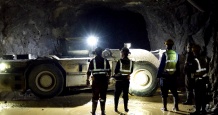
Philanthropic donation will help achieve a sustainable future for mining
Anglo American, one of the world’s leading mining companies, has made a transformational donation to support sustainable mining research and education at the Camborne School of Mines, University of Exeter.

University of Exeter hosts British Association for Applied Linguistics Vocabulary Special Interest Group Annual Conference 2022
The University of Exeter’s Graduate School of Education hosted the British Association for Applied Linguistics Vocabulary Special Interest Group’s Annual Conference 2022.

'Sensing system' spots struggling ecosystems
A new "resilience sensing system" can identify ecosystems that are in danger of collapse, research shows.

Exeter experts elected to prestigious British Academy Fellowships
Three academics from the University of Exeter have been elected as Fellows of the British Academy.

University of Exeter expert plays crucial role in new UK Critical Minerals Strategy
An expert from the University of Exeter has played an important role to secure the supply chain of critical minerals.

Scientists unravel mystery behind formation of first quasars in the early universe
The quest to unravel the mystery behind the formation of the first quasars in the early universe has taken a significant step forward.

Famine and disease drove the evolution of lactose tolerance in Europe
Prehistoric people in Europe were consuming milk thousands of years before humans evolved the genetic trait allowing us to digest the milk sugar lactose as adults.

‘New customer behaviours’ are key to developing circular economy, report finds
Consumer behaviour needs to change fundamentally to ensure the successful transition to a circular economy, according to a new report.

Metaphor and images should be used alongside traditional medical scales for patients to describe pain, study says
Patients should be able to use images and metaphors alongside traditional medical scales to describe their pain to doctors, a new study says.

Exeter researchers pay tribute to James Lovelock
University of Exeter researchers have paid tribute to scientist James Lovelock, who has died aged 103.

Fieldwork carried out over 20 years will show comprehensive history of modern Shiʿism’s foundational intellectual moment
Fieldwork over two decades will help experts produce the first comprehensive account of modern Shiʿism’s foundational intellectual moment.

Cloud study demystifies impact of aerosols
Aerosol particles in the atmosphere have a bigger impact on cloud cover than previously thought.

Climate change: potential to end humanity ‘dangerously underexplored’
Global heating could become “catastrophic” for humanity if temperature rises are worse than many predict or cause cascades of events we have yet to consider, or indeed both. The world needs to start preparing for the possibility of a “climate endgame”.

Experts to discuss 'tipping points' alliance
Experts will meet next month to discuss catastrophic climate "tipping points" – and the power of positive tipping points to avert the climate crisis.

Mindful employees find their jobs less boring and are less likely to quit
Employees who practise mindfulness are less bored at work and less likely to quit, according to a new study.

Exeter’s environmental expertise makes Bristol Avon Catchment Market a world-first
Nature-based projects that help the environment will be incentivised through an innovative new online market.

How measuring blood pressure in both arms can help reduce cardiovascular risk and hypertension
Blood pressure should be measured in both arms and the higher reading should be adopted to improve hypertension diagnosis and management, according to a new study.

Harmful antipsychotics prescribing jumped 50 per cent in dementia care homes during pandemic
Prescribing of potentially harmful antipsychotics to people with dementia has increased by more than 50 per cent on average in care homes during the pandemic, new research has found.

Education experts awarded prestigious National Teaching Fellowships
Two education experts renowned for their innovative approaches to teaching and learning and professional development have been recognised with a prestigious national fellowship.

New book reveals the historical and political inspirations of Star Wars
Real-world historical events and political actors have played a pivotal role in shaping the Star Wars universe according to a ground-breaking new book published this week.

Amazon's growth limited by lack of phosphorus
Growth of the Amazon rainforest in our increasingly carbon-rich atmosphere could be limited by a lack of phosphorus in the soil, new research shows.

Safeguarding Indigenous Peoples’ lands could save primates
Safeguarding Indigenous Peoples' lands offers the best chance of preventing the extinction of the world's primates, researchers say.

Community growing schemes and mapping empty housing identified as key sustainability goals for Cornwall
Supporting community growing schemes and mapping unused properties to house local people have been identified as sustainability goals for the coming year by community leaders across Cornwall, according to a new report.

Study achieves longest continuous tracking of migrating insects
Insects are the world’s smallest flying migrants, but they can maintain perfectly straight flight paths even in unfavorable wind conditions, according to a new study from the Max Planck Institute of Animal Behavior (MPI-AB) and the University of Konstanz in Germany, and the University of Exeter in the UK.

New study maps the influence of organised crime and the wealthy over Russian foreign policy
Russian foreign policy-making is often guided by elites, intermediaries, private companies, and organised crime groups rather than the national interest, a new study shows.

Songs, stories and food used to showcase impact of Penryn’s Loveland Community Field at unique event
Songs, stories and vegetables and grain grown in Penryn helped showcase Loveland Community Field.

Government should enlist expertise of the private sector to fight kleptocracy, experts urge
Experts have urged the Government to enlist the expertise of the private sector to fight kleptocracy.

Scientists stunned by vast insect migration
Migratory insects cross at least 100km of open sea to reach Cyprus on the way to mainland Europe.

Breakthrough in understanding why we struggle to recognise the faces of people from different racial backgrounds
Cognitive Psychologists at the University of Exeter believe they have discovered the answer to a 60-year-old question as to why people find it more difficult to recognise faces from visually distinct racial backgrounds than they do their own.

Struggling to choose between Liz or Rishi? New website will help you make your pick
Voters struggling to understand what the Tory leader contest means for them can get help from a new website.

Beef farmers want to transition to net zero – but practical and financial barriers are standing in their way, report warns
Practical and financial barriers associated with reducing carbon footprints and capturing more carbon are standing in the way of beef farmers making the transition to net zero, a report warns.

Stronger religious beliefs linked to higher levels of sexual satisfaction, study shows
Having stronger religious beliefs is linked to higher levels of sexual satisfaction, a new study shows.

Majority of posts on extremist online forums made by “hyper” poster cliques, study shows
Most posts in extremist online forums are made by a clique of particularly committed members, a major new study shows.

Longer wait for some forms of cancer diagnosis for Black and Asian patients
Black and Asian patients are waiting up to a month longer than White patients for some forms of cancer diagnosis from the point at which they first seek medical help, new research has found.

Half of pupils who get low grades in GCSEs already judged to be behind at age 5, study finds
Assessments of children as early as age 3 and 5 are powerful predictors of who will go on to fail to secure good GCSE results in English language and maths, a major study has revealed.

Terrorism became more important issue for voters following Manchester bombing, study shows
Terrorism became a more important issue for voters during the 2017 General Election because of the Manchester bombing, a new study shows.

Crime-scene technique identifies asteroid sites
Analysing the charred remains of plants can confirm the locations of asteroid strikes in the distant past, new research shows.

First exoplanet image from James Webb Space Telescope revealed
Astronomers from the University of Exeter have led the effort to capture the first-ever direct image of an exoplanet using the pioneering James Webb Space Telescope.

Congo creates first Marine Protected Areas
The Republic of the Congo has created its first ever Marine Protected Areas (MPAs), supported by a research team including the University of Exeter and the Wildlife Conservation Society.

Scientists study tourists to protect great apes
Researchers are protecting great apes from diseases by studying the behaviour and expectations of tourists who visit them.

'Radical decentralisation' needed in Iran to allow Kurdish communities to benefit from natural resources, study argues
A radical decentralisation of politics and decision-making in Iran is needed to allow Kurdish communities to benefit from natural resources, experts have argued.

'Disconnection' and 'significant policy churn' may impact the success of T Level vocational qualifications, study warns
Disconnection between further education lecturers and industry and significant policy churn may impact on the success of T Level qualifications, a new study warns.
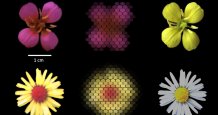
Bees use patterns – not just colours – to find flowers
Honeybees rely heavily on flower patterns when searching for food, new research shows.

Norman dominance of Europe inspired first crusades in the Holy Land, new book shows
First European crusaders of Holy Land were inspired by fame and fortune awarded to Norman conquerors in Europe.

Penguin publishing deal helped Virginia Woolf’s work reach a mass market, study shows
Careful deals negotiated by Virginia Woolf’s husband with Penguin Books helped her work reach a mass market, a new study shows.

Risk of passing multiple climate tipping points escalates above 1.5°C global warming
Multiple climate tipping points could be triggered if global temperature rises beyond 1.5°C above pre-industrial levels, according to a major new analysis.

Little Ice Age study reveals North Atlantic reached a tipping point
Scientists have used centuries-old clam shells to see how the North Atlantic climate system reached a "tipping point" before the Little Ice Age.

Major new tipping points initiative launched at conference
Efforts to activate "positive tipping points" to tackle the climate crisis have been boosted by a £1 million (US$1.15m) grant from the Bezos Earth Fund.

Quest to uncover intricacies of exoplanet atmospheres reaches important milestone
The quest to uncover intricacies of the atmospheres of faraway planets has reached an important milestone.

Lack of technical and financial support hinders efforts to implement global guidelines for antimicrobial resistance in Benin and Burkina Faso, study shows
Lack of technical and financial support hinders efforts to implement global guidelines for antimicrobial resistance in Benin and Burkina Faso, new research shows.

Lack of public appreciation contributes to loneliness in farming, study shows
A lack of public appreciation for farmers and understanding of the work they do and the pressures they’re under contributes to feelings of loneliness, according to a new study.

Fertilisers cause more than 2% of global emissions
Synthetic nitrogen fertilisers account for 2.1% of global greenhouse gas emissions, new research shows.

New bid to 'outflank' antimicrobial resistance
A major new project will investigate the defence mechanisms of bacterial cells, to help stop the spread of drug-resistant genes.
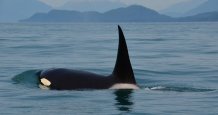
Family ties give animals reasons to 'help or harm' as they age
The structure of family groups gives animals an incentive to help or harm their social group as they age, new research shows.

Key breakthrough links changes in length-of-day with climate prediction
Scientists have made a key breakthrough in the quest to accurately predict fluctuations in the rotation of the Earth and so the length of the day - potentially opening up new predictions for the effects of climate change.

Centre for Water Systems secures funding boost for pivotal research and education projects
Two pivotal new projects, led by experts from the University of Exeter and designed to bolster research and education within the water sector, have secured a significant funding boost.

Parental age could be key factor in helping thoroughbred horses be first past the post
In a sport where the finest of margins can determine the winner, a new study has shown that parental age can be a determining factor in who comes out on top in horse races.

Major new study shows 'concerning' levels of physical and mental health problems among farmers and agricultural workers
A major new study shows “concerning” levels of physical and mental health problems among farmers and agricultural workers.

'Forgotten' forests and savannas vital to people, biodiversity and climate
With massive international focus on rainforests, the vital importance of tropical dry forests and savannas is being overlooked, researchers say.

Sustainable fishing plan for Caribbean spiny lobsters
A new project will help to ensure sustainable fishing and aquaculture (fish farming) of Caribbean spiny lobsters.

“Plant blindness” is caused by urban life and could be cured through wild food foraging, study shows
“Plant blindness” is caused by a lack of exposure to nature and could be cured by close contact through activities such as wild food foraging, a study shows.

How fluctuating oxygen levels may have accelerated animal evolution
Oxygen levels in the Earth’s atmosphere are likely to have “fluctuated wildly” one billion years ago, creating conditions that could have accelerated the development of early animal life, according to new research.

A rapid switch in magmatic plumbing taps porphyry copper deposit-forming magmas
Scientists have made a fascinating new discovery about the formation of mineral deposits crucial to our transition to a ‘green economy’.

Bumblebees revisit favourite flowers as sun sets
As the sun sets, bumblebees revisit "profitable" flowers they encountered during the day, new research suggests.

Breakthrough in protecting bananas from Panama disease
Exeter scientists have provided hope in the fight to control Panama disease in bananas.

500 million year-old fossils reveal answer to evolutionary riddle
An exceptionally well-preserved collection of fossils discovered in eastern Yunnan Province, China, has enabled scientists to solve a centuries-old riddle in the evolution of life on earth, revealing what the first animals to make skeletons looked like. The results have been published today in Proceedings of the Royal Society B.
